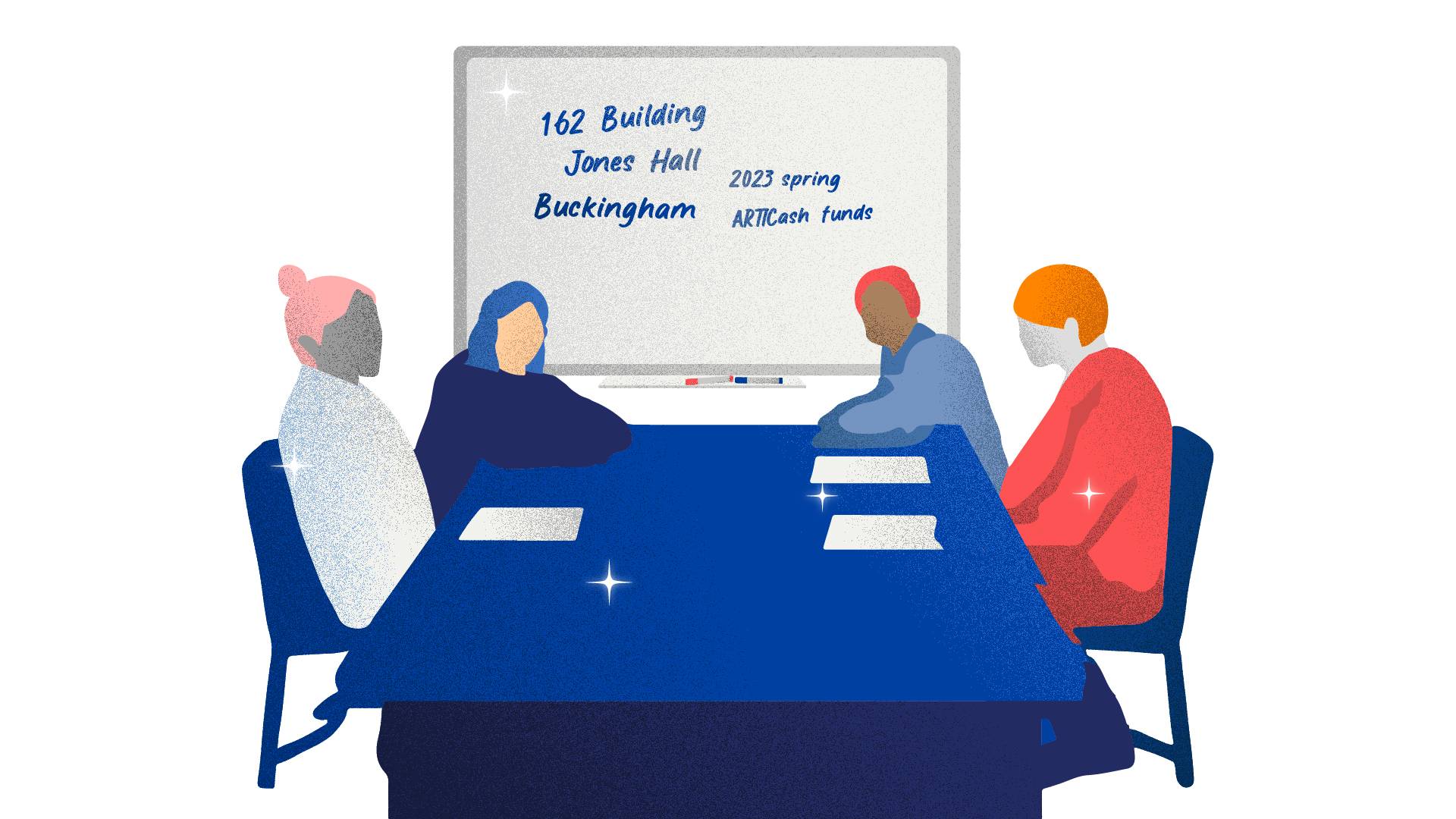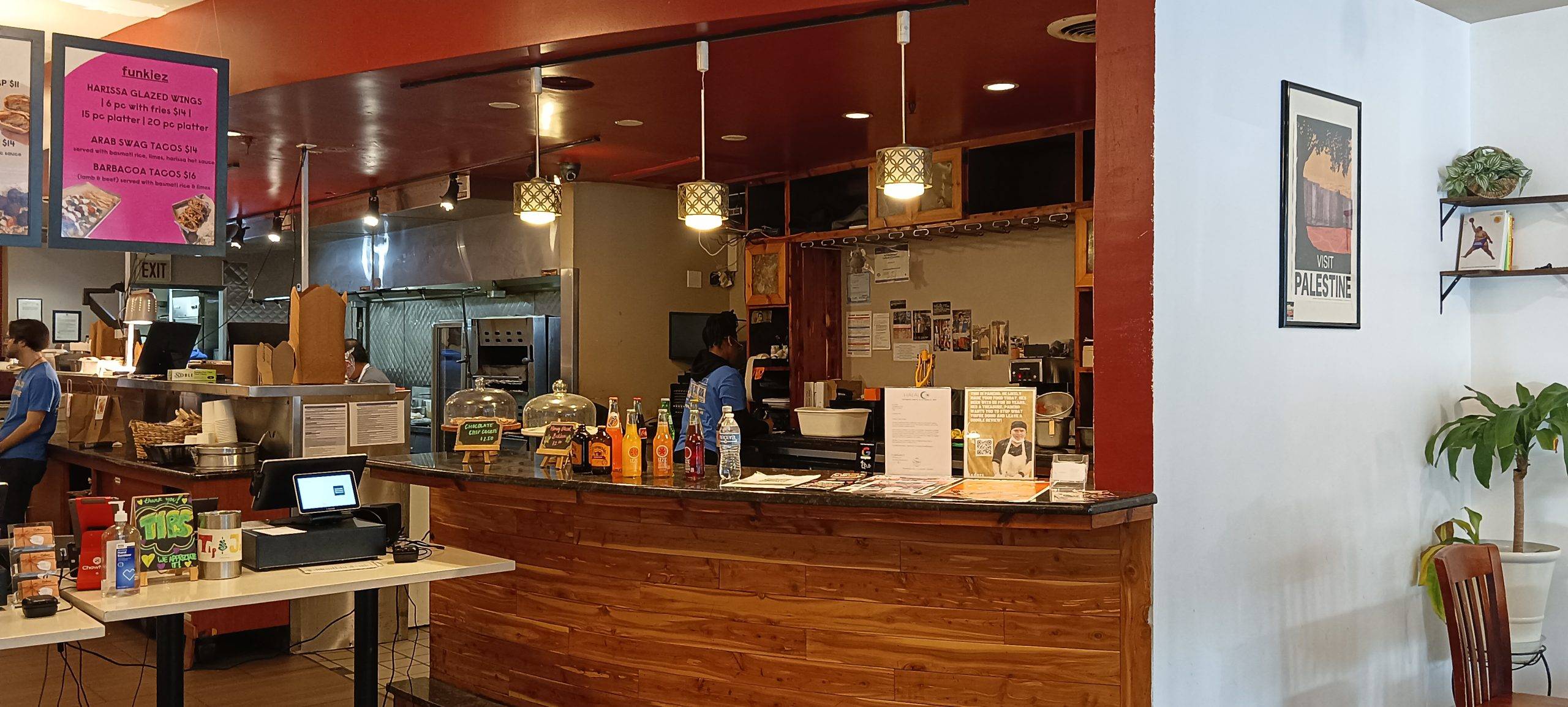When Yaelin Kim was hired as Resident Advisor at the School of the Art Institute of Chicago, she was passionate about her job.
As an RA, her responsibilities entailed frequent interactions with students living in the school’s housing, along with organizing programs for them. Kim was excited about the pivotal role she would play in fostering a sense of community within the school.
However, once she started the job, she found herself in a situation she didn’t anticipate.
“The job exceeded the labor that I expected, or, at least, asked more of me emotionally than logistically,” Kim said.
Besides Kim, her fellow RAs at the three on-campus residences (162 Building, Jones Hall, and The Buckingham) share similar views. From getting inadequate compensation to pouring emotional labor on an overwhelming job, RAs said that their working conditions have been challenging.
“Our job is very intense and interpersonal. Similarly, there’s not a lot of separation between work and life. The working conditions aren’t either ideal,” Mads Reardon, an RA in the Buckingham Building said.
Unlike several other universities including the University of Pennsylvania, Columbia University, and Boston University, where student workers have unionized or are in the process of gaining union status, SAIC lacks such representation. As a result, 32 SAIC RAs formed a reform group last fall and have been actively negotiating with Residence Life — SAIC’s administration body — to improve their working conditions.
“We all were united because we worked under the same conditions. Hence, it was really important to have a united front and bring in a collective energy so we can improve our work conditions and be compensated for the work we do,” Reardon said.
Since their formation, the reform group has already sparked many changes that they believe have improved their working conditions. The Residence Life increased the RAs yearly stipend from $2,000 to $3,600 and ARTICash funds from $1,150 to $1,200.
Another significant change was the reduction of working hours. RAs said they were overworking in comparison to the compensation they received from the school.
So what motivated the group to come together and demand these changes?
According to the members of the reform group, former RAs inspired this new group to start a united front.
In 2021 when most of the members of the reform group started their role, an announcement was made that instead of only ARTICash funds, the RAs would also be paid in cash, a change made possible because of the former RAs’ demands.
Continuing the momentum, RAs reached a consensus to unite to improve their conditions more, according to Reardon, a member of the group.
“We started collectively crunching numbers and started discussing how we felt. We also address the changes we think need to occur in our working conditions during those meetings,” Reardon said.
To get a better sense of unionizing and negotiation, some of the group members also met with senior organizers from the Art Institute of Chicago Workers United, SAIC’s union for non-tenure-track faculty. Once the spring semester of 2023 commenced, the reform group met the representatives from Residence Life and put their demands forward.
“We had sit-down meetings with Abigail Holcombs, Associate Dean of Student Affairs for Residence Life; and Debbie Martin, Acting Vice President and Dean of Student Affairs. The bargaining happened in good faith mostly,” Pratima Pinnepalli, an RA, said. Pinnepali is a frequent contributor to F Newsmagazine.
Answering their demands, the administration did make some quick changes to improve working conditions which included a $20 poster printing allowance for RAs’ programmed events that was previously self-funded. The administration also shortened bi-weekly meetings with hall directors, from an hour to 30 minutes.
For the group members, these changes were big. And they strongly believe that it happened because they all came together.
“It’s really important to stress that since we started talking, change has happened. Our grievances in the past have been taken into consideration because we all spoke and we will continue doing so,” said Pinnepalli.
The Struggles of Being an RA
To understand why RAs formed their united front, it is important to know what their job entails.
Typically RAs are student workers hired by Residence Life to help care for students while living alongside them in campus housing. Currently, SAIC employs around three dozen RAs who look after more than 100 residents living in the three residence halls and work for a minimum of 20 hours a week.
Despite their roles as caretakers of the residents who help students through hardships, there’s more to the job than meets the eye, Liberty Harris, a senior RA, said.
“This job is advertised as you gonna take care of residents. But once you slowly start working, you realize you have to be somebody who has to work 24/7,” she said. Harris continues: “You’re somebody who, whether on or not on-call, has to be responsible for residents. You are responsible for students on campus. You just kind of fall into all of these responsibilities, and it gets so overwhelming so quickly, and then you don’t feel like you’re properly getting compensated as well.”
Harris’ sentiments were echoed by Reardon, who said they can’t describe a typical day in their role as RA because not every day is the same; they are buried with different responsibilities all of the time.
“There’s a lot of emotional labor that I think we would all love to pour into helping our residents, to get connected with the things that would benefit them. But when we barely have time to kind of take care of ourselves, it’s hard to take care of other people,” Reardon said.
Resident Life lists four areas where RAs actively work during their tenure on one of its websites: Community Development, On Call and Crisis Management, Staff Member, and Administrative Works.
But for RAs — who are students themselves and are dealing with school work — Harris said handling all these responsibilities can be challenging.
“We’re dealing with things like COVID. We’re dealing with things like homesickness. We need to create posters. We need to host parties. At the age of 20, we sometimes have to be mandated reporters as well. Okay, technically, I signed up for this job, and this was all written out for me before I signed up for it, and went through the training. But it’s just like, I don’t think there’s any amount of training that can prepare you 100 percent,” Harris continued.
Pinnepali said that most RAs can keep up with everything because of housing, which is a part of their remuneration.
“It’s very hard to turn down the role because people get housing when they are employed. A lot of people don’t have other options, at least not ones that are good for them when it comes to housing. So people are willing to put up with a lot more than they can,” Pinnepali said.
According to Holcomb, on average the housing RAs get is valued at $15,750 or $19,100, depending on the building.
Besides the housing, RAs get a $4,800 stipend which includes a cash payment and ARTICash. This includes compensation for a 29-day training (22 days before the fall semester and seven days before the spring semester), when RAs must be available for all days and evenings, and cannot do other jobs during the training period.
Despite the increased stipend members of the reform group still feel they could be compensated more based on their laborious work.
“It’s hard to quantify the compensation. But the school needs to recognize how much labor we are putting into it. We deserve to get fairly compensated, and we will probably keep on demanding for that,” Kim said.
Future Plans for the Reform Group
Reform members feel cautiously optimistic that more changes will take place in their working conditions.
“We were able to implement some big changes. All of the RAs overcame differences to reach a common goal, to demand better working conditions and get ourselves heard. This momentum will be continuing,” Reardon said.
The school administration said that they would also work closely with RAs to collaborate on improvements in their working conditions in the future.
In an email interview with F Newsmagazine, Holcomb wrote, “Working collaboratively [with the reform group], we were able to make several positive changes to the RA position. In response to their feedback, we restructured RA committees, removed many responsibilities related to room preparation, incorporated their feedback into training, adjusted the number of resident check-ins, and reduced the number of community walks.”
“We look forward to continuing these discussions this year,” she added.
Some of the areas the reform group members think the administration can work on in the upcoming days are updating the COVID policies, organizing shorter training, creating severance processes, and structuring committees better.
In addition, the members demand transparency about Residence Life’s budget allocations.
However, RAs understand their demands will take time to be implemented. This semester all four of the RAs interviewed will be graduating, but this won’t deter them from continuing to ask for fair treatment. They said they want to leave a legacy for the upcoming RAs.
“When changes are made for the most part, we know that we’re not going to see them getting implemented. Still, we will work so that somebody somewhere will not have to go through what we had to deal with,” Reardon said.
“We just want good things for our current selves and whoever could be in our same shoes in the future. We just want to see each other, get better working conditions and work for people in the future so that they don’t feel as overwhelmed, overworked or undervalued,” they added.






















